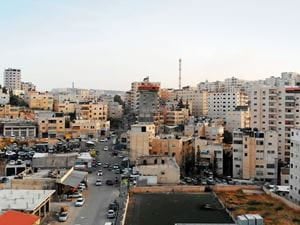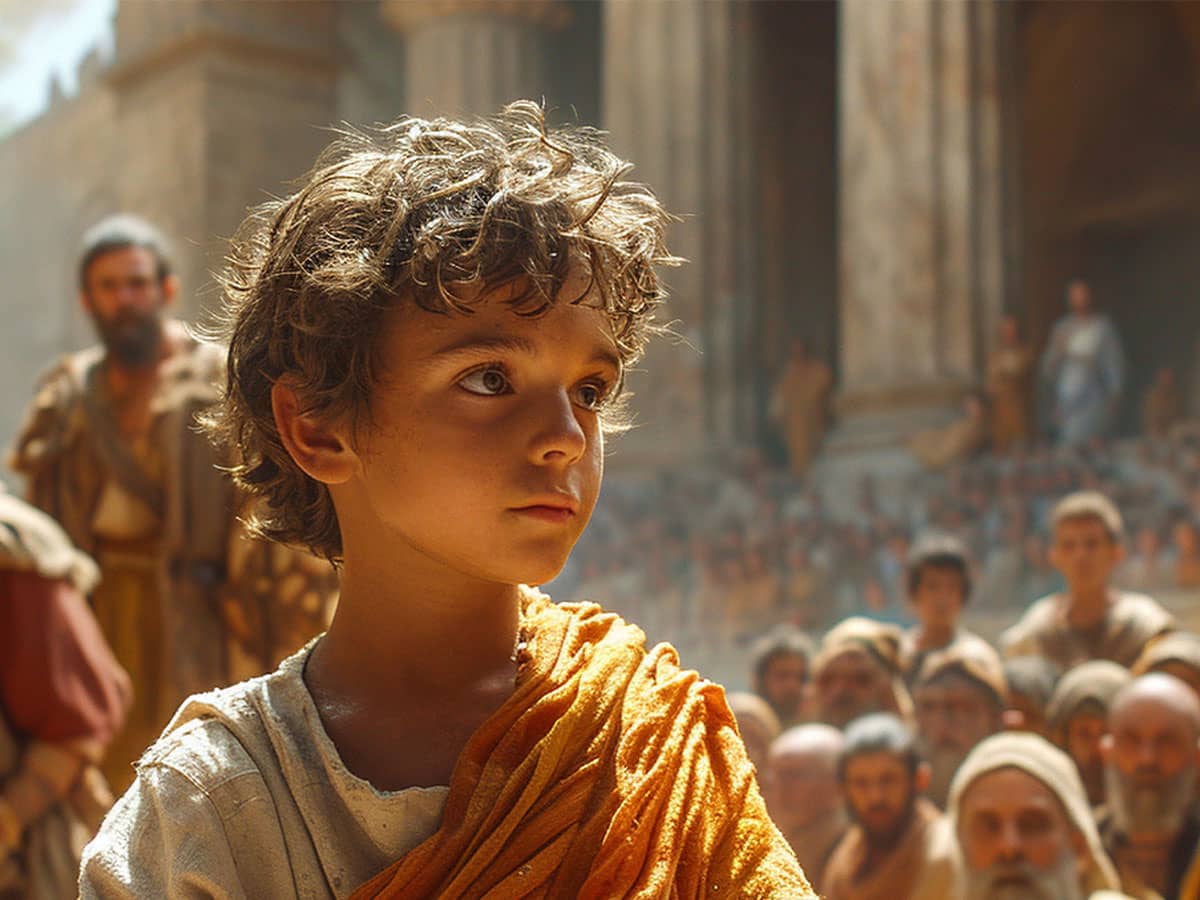
October 7, 2023, was a night like any other in the Middle East. Both Israelis and Palestinians went to bed as usual, with some trepidation of the outbreak but resting in the recent peace both sides have experienced.
Then, it happened.
The Palestinian militia, Hamas, launched an assault on the Gaza Strip. It was unwarranted and unprovoked against the Israeli people as thousands of armed soldiers invaded, killing approximately 1,200 innocent Jews and another 250 taken hostage. Not since the Holocaust has such a painstaking attack against the Jewish people taken place.
For decades, these bloody and senseless attacks have taken place and are covered by international news outlets. Regretfully, outside of those people affected by this senseless violence, people seem numb to the noise. So, awareness of this turmoil is reduced, concern is lessened, and prayers do not happen.
That's the worst aspect of what's happening in Gaza because it is a biblical place and has been since Father Abraham had two of his many sons.
Gaza of the World
Gaza is no stranger to war, unfortunately. Most people alive today know about storied skirmishes many times this century. Going back in time, an estimated 700,000 Palestinian refugees in Gaza caused "Nakbe" (meaning catastrophe in Arabic) during the 1950s and 1960s as the "Gaza Strip" was under Egyptian rule.
The 140-square-mile territory shares a border with Egypt, and the "West Bank" (over 2,100 square miles) is located inside Israel near the Mediterranean Sea. Today, approximately 1/10 of the Palestinian population travel to Israel for work, family, or even home. Unlike billions of other people who live in "the suburbs," these question their safety frequently.
A decade before Egyptian rule began, British rule ended in 1948, which increased the civil war between Jewish and Arabic people in both the Gaza Strip and the West Bank. This was the heart of the pivotal Arab-Israeli War of 1948, which saw five Arabic countries band together against Israel (e.g., Jordan, Iraq, Syria, Lebanon, and Egypt, which was given control of the Gaza Strip following this war).
This war was both of geographic and prophetic significance as it led to the independence of the free state of Israel on May 14, 1948, signed as UN Resolution 181 and recognized by President Harry S. Truman. This is a landlocked tug-of-war between the Arabic and Jewish people since both claim Jerusalem as their capital city. Unfortunately, neither can enjoy the city because of the ages-long civil war. Even in times of peace since that day, there is a threat of war at any minute, much like what happened last October by Hamas.
- In 1956, the Suez Crisis (also known as the Suez Conflict) involved Israel partnering with the United Kingdom and France to the Egyptian regime of the crucial Suez Canal. It's more than an area of water used for trade; it's a superhighway for energy, goods, and commodities between Asia and the Middle East.
- Many believe prophecy about the end times was fulfilled in 1964 when an Arab League Summit in Cairo helped spawn the Palestinian Liberation Organization (PLO). They embraced terrorism, which eventually became a brand of diplomacy when led by Yasser Arafat until he died in 2004. One of the signature moments of his rule was the 1972 Munich Olympics Massacre when a PLO faction kidnapped 11 members of the Israeli Olympic Team while competing in Germany.
- It is contentious, and Israel defends what it believes is their land, even when it seems futile. In June 1967, Israel gained back control from Egyptian and Syrian forces in the Gaza Strip in a moment of unprecedented battle so violent it was called "The Six-Day War." Following that time, the timeline between these people is scant with demise and dead citizens.
From the 1982 wars in Lebanon to the assassination of Israeli Prime Minister Yitzhak Rabin in 1995, peace treaties in the 1990s to Hamas first taking control of Gaza in 2007, this significant plot of land has roots that go back much farther than Israeli independence or global empires.
Gaza of the Bible
"And the border of the Canaanites was from Sidon, as thou comest to Gerar, unto Gaza; as thou goest unto Sodom and Gomorrah, and Admah, and Zeboim, even unto Lasha" (Genesis 10:19 KJV).
Much like "the begats" in the Bible (i.e., genealogy), many of the verses about geography are skimmed or ignored. Yet, this is the first time the city was mentioned in the Bible.
Gaza is typically associated with the Philistines who traveled to Canaan from Crete (Deuteronomy 2:23). This modest strip of land in the southwestern area of Israel is the boiling point of chaos in the Middle East. Before the Philistines sacked Gaza in the 12th century BCE, Egypt ruled the region for 350 years. The giants there today are threats of suicide bombs, missile attacks, and terrorist organizations attacking innocent people because of a millennia-old source.
From the Macedonian legion of Alexander the Great to the brutal Ottoman Empire led by the Sultans Osman I and Mehmed II, Gaza has been trampled and transformed by countless wars that led to its tempestuous state of living today. This area has been the crux of numerous battles, but the argument is far more than real estate and a headline seen on the crawl of a national TV network.
Ironically, Gaza has usually been the heart of outreach, considering its Biblical implications and roots, as read in Amos, Jeremiah, Zephaniah, and Zechariah, which discuss its prophetic destruction. It's also been the site of Biblical conflict, as read in Numbers, Judges, 1 Samuel, and 2 Kings. In Acts 8, Gaza is also named the site of an evangelical crusade led by Philip.
Yet, the genesis of conflict traces back to a word Abram was given and a promise he broke.
Issac & Ishmael
"Then the Lord appeared to Abram and said, 'To your descendants, I will give this land.' And there he built an altar to the Lord, who had appeared to him" (Genesis 12:7 NKJV).
To a modest shepherd, this prophecy didn't make sense at all. His descendants didn't exist outside Aaron, Miriam, his siblings, and Sarai, his wife. He had a sense God meant much more than them, but he could not conceive the Lord's promise because of a lack of understanding and, perhaps, a little fear. God truly stretched Abram's imagination as if that wasn't already mind-boggling enough.
"Also I give to you and your descendants after you the land in which you are a stranger, all the land of Canaan, as an everlasting possession, and I will be their God" (Genesis 17:8 NKJV).
This is the promise of a child, the firstborn of both Abram and Sarai. We know how this plays out: Abram came home, told his wife, and she laughed out of sheer disbelief. Yet, if God said it…and that's when she recommended her husband sleep with her handmaiden, Hagar. The result of that rebellious choice of trying to help God's Word come to pass was Ishmael. Fourteen years passed until Issac was born.
Yet, notice one other thing that rarely gets attention in that verse: "...all the land of Canaan." The same place taken over by the Philistines, directly connected to the present Gaza Strip, was promised to Abraham, and it would be passed to Issac–not Ishmael.
A common misnomer is that Ishmael is "the father of the Arabs." Neither historical nor biblical evidence validates that. However, "Ishmaelites" were Canaanites, the progeny of Ishmael's seed. They spoke Hebrew, not Arabic. In ancient times, more minor civilizations were absorbed by larger ones. People took on nuances like culture, language, religion, and persuasion.
And then, there's this.
In the Bible, Ishmael is said to be an illegitimate son of Abraham. He is mentioned 47 times, from Genesis to Jeremiah. Yet, in the Qu'ran, he is known as a prophet and an apostle. In other words, he was a man of valor and distinction.
The Qu'ran reads in Surah Al-Baqarah 2.125, "And ˹remember˺ when We made the Sacred House a center and a sanctuary for the people ˹saying˺, "˹You may˺ take the standing-place of Abraham as a site of prayer." And We entrusted Abraham and Ishmael to purify My House for those who circle it, meditate in it, and bow and prostrate themselves ˹in prayer.˺"
The son of Hagar and Abraham is known as "the first Arab." Although Ishmael was adopted more by Arabs than was born unto them, this battle that wages perpetually is not over real estate or land rights. In the Bible and Qu'ran, this is solely about birthright. Who are the worthy heirs of the Gaza Strip? Who deserved benefits from the Abrahamic Covenant? One son was kept and cherished; the other was sent away and disowned.
Abraham's seed also joined Ishmael with his second wife, Keturah. Those sons–Ishbak, Jokshan, Medan, Median, Shuah, and Zimran (Genesis 25:2, 1 Chronicles 1:32)–are considered (and validated) as fathers of Arabian tribes. Think of most Christian cities sacked throughout history, like Constantinople and the Byzantine Empire. This is modern-day Turkey (now known as "Türkiye"), and Emperor Constantine's castle is now the largest mosque in the world Hagia Sophia, thanks to the forceful possession of the Ottoman Empire.
One kingdom was put out and replaced by another. Romans cast out Jewish people and welcomed Arabic people. Arabs versus Jews. Culture against culture. Palestine is warring against Israel. The names change, but the fighting remains. Today, Hamas has launched over 6,000 rockets into Israel since the war began in October 2023.
And Now You Know
Another peace treaty or not, this fight will not stop until Jesus' return. Many verses in the Bible speak to this reality:
- Conflict will befall Israel close to the end times (Jeremiah 30:7)
- Jews return to Israel in droves (Ezekiel 34:11-13)
- The Antichrist makes a peace treaty for seven years of no conflict in Israel (Isaiah 28:18)
- A grand temple will be rebuilt in Jerusalem (Daniel 9:27)
- The Antichrist and global persecution will break the stand-down in Israel rages (Zechariah 11:16)
- Finally, Israel confesses to a Messiah in Jesus (Zechariah 12:10)
The end times will be unpredictable outside prophecy. We have heard of all sorts of wars. There are even more "rumors of wars" (Matthew 24:4-6). Still, no one will know the day or the hour of Jesus' glorious return (Matthew 24:36). Until then, Israel and Palestine will continue to fight, innocent people will continue to die, and Jerusalem will continue to be the center of the spiritual universe as we await the Messiah.
Those headlines should be taken more seriously to understand the biblical significance of Gaza. Now we can.

